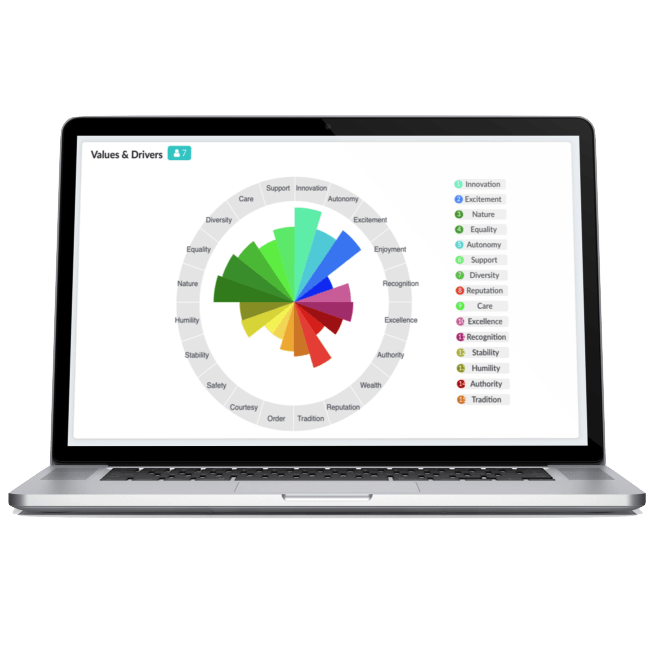Everyone is talking about engagement. This is probably because research studies have consistently shown that employee engagement is the common thread between profitability, productivity, employee retention and loyalty. According to Gallup, two thirds of full-time employees are disengaged at work and this results in billions of dollars’ worth of lost productivity. It seems clear that our current performance models are not working. What is less clear is how to create an engaged workforce in our increasingly disrupted and volatile business landscape…
By ‘not working’ it’s important to distinguish between thriving and surviving employees. Disengaged employees still achieve the bottom line (surviving). They show up at 9am, look busy, do just enough work, and leave again at 5pm. These employees bring their C-game to work. But they are unhappy, unmotivated and it’s evident in their output and your turnover. Engaged employees bring their A-game. These employees are enthusiastic, productive and they take initiative, going over and above what is expected of them. These employees are thriving.
The answer to having this kind of A-game advantage is corporate culture. Yet culture is one of the most frequently overlooked determinants of performance.
Culture is the unspoken driver of attitudes and behaviours in a group and resides in their shared values. We often think of culture as ethnicity. But experientially we have all felt culture on a smaller scale. Think about the teams, groups, families or classes you have experienced. In some teams there was a lot of flexibility around how things are done, while in others everyone followed the rules; in some teams the focus was on working together, but in others it was all about figuring it out on your own; some teams emphasised learning whereas others focused on results. Furthermore, what worked for you might not have worked for everyone. In each environment, some members of the team thrived and others didn’t. Some shared the same underlying values.
Culture is that invisible feeling that creates tension or comfort; that thwarts or enables our engagement and subsequent motivation. Although intelligence is somewhat innate, motivation is extremely responsive to the environment. A person with an average IQ and high motivation will outperform a person with a high IQ and average motivation every time. In the same way a football team with the most talented players who haven’t learned to work together will be outperformed by a team of less skilled players who have.
Every employee has the ability to play at their A-game or their C-game, what matters is whether their environment is supporting them to thrive, or simply survive.

While the difference between two workers’ A-game is a measure of their personal ability, the difference between each worker’s A-and-C is influenced by culture. Selecting the highest A-game from several job applicants is a question of job-fit, getting an employee to perform at their A-game instead of their C-game is a question of culture-fit. Both are essential to high performing teams, yet we have tended to focus on job-fit. This is changing. A recent report by High-Impact Talent Acquisition showed a clear trend in high performing organisations toward the latter (hiring for culture-fit) and on improving their employee’s experience (culture development).
To guide your ship in the right direction, whether it’s your classroom, your home, or your organisation, you need to tune into culture. And the sooner you start the better. Over time culture reinforces mindsets and behaviour-patterns and grows increasingly resistant to change. It’s imperative that leaders learn to encourage and reinforce the behaviours they need to bring their business plan to life. But how?
Strong culture is not grown by telling people what to do, but by showing them. Command-and-control management styles are losing ground. Enforcing definitive consequences for bad (or C-game) behaviour won’t work if your culture is not where you need it to be. Workers motivated by fear will do what it takes to avoid punishment… and nothing more. They will also jump ship at their first chance, perhaps taking their A-game to your competitor. On the other hand, workers motivated by shared values and purpose are more productive, effective, and committed. So what kind of culture is best?
Unfortunately, there is not one easy answer. Rather there are eight distinct cultural styles.
Each organisation may need a different kind of culture depending on how their people currently think, what they want to achieve, and where they are. Culture will evolve over time as the business reaches different phases of its life cycle. This means that what worked in the past may not necessarily be able to get you to where you want to be in the future. Responding to a disruption or crisis may require driving a completely new culture. Similarly, what worked for one organisation may not work for another – even despite being in the same industry. What is essential to your ultimate success is that your culture is consistent and aligned with your strategy and story.
If you have a problem with engagement, the culture you have isn’t working anymore. Even the most authentic purpose and carefully laid business plan will derail if the right culture is not there to support it. Words on paper don’t achieve the outcomes you want, people do. Right now, your culture is developing whether you are steering the ship or not. To mitigate the risks of a misaligned culture and maximise the benefits of strategy-supportive culture, start by diagnosing your personal values and organisational culture today.


Dr. Kate Derry
Dr. Kate Derry specialises in self-psychology. Her research demonstrates that how people think about themselves has a large impact on how they function, both internally and with the world around them. Kate believes that self-insight and acceptance is the first step towards optimisation and positive change. She is a published author and has worked in the space of entrepreneurship, innovation and education. Kate combines her skills in research and development, as well as science communication, to deliver more actionable and reliable people insights.

